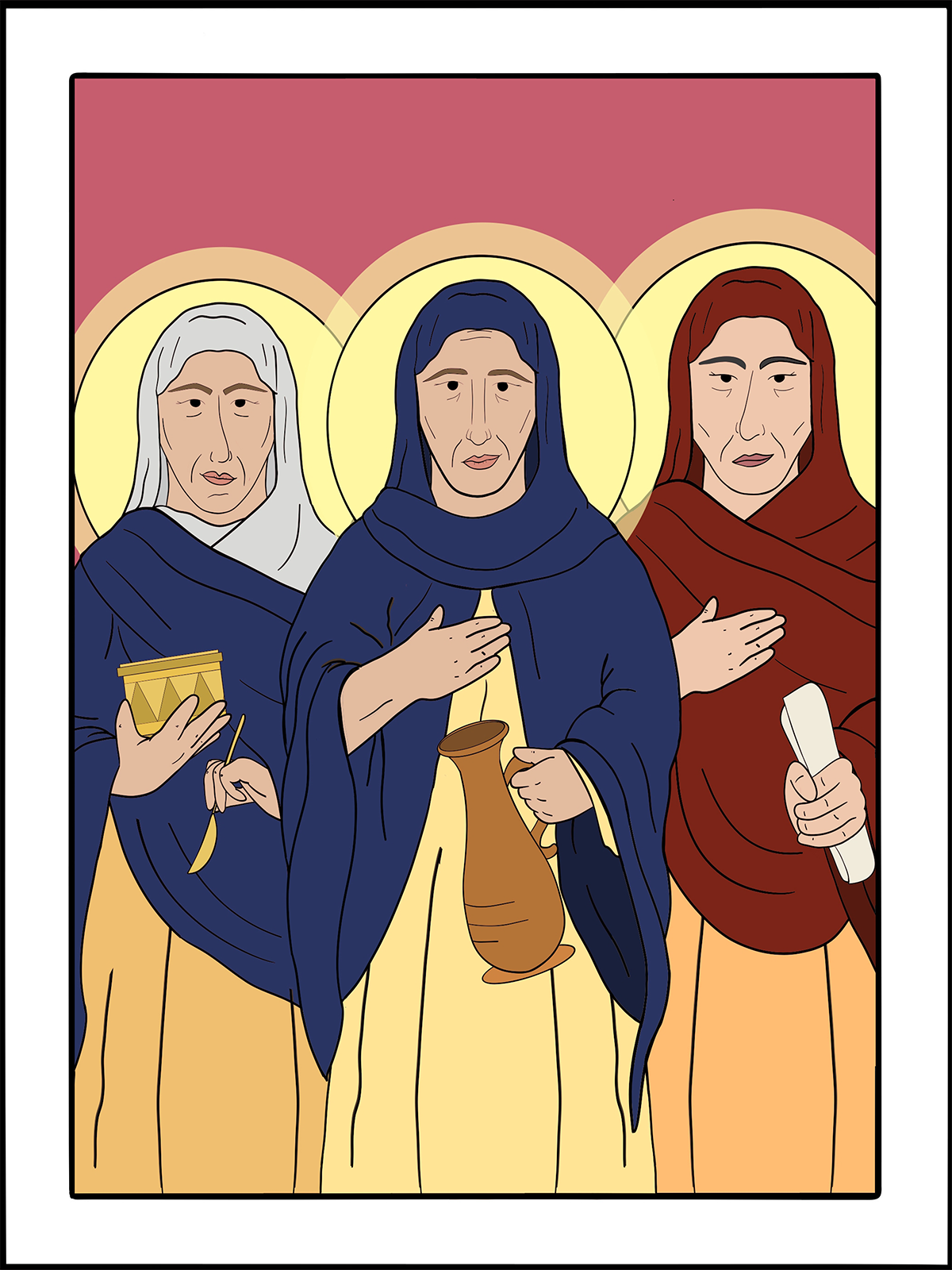
April 14
Zenaida, Philonella, and Hermione
Unmercenary Physicians, 100 & 117
art by Rev. Kirsten Kohr of Uhrichsville, Ohio Merciful God, whose most dear Son came to heal the sick, raise the dead, cast out demons, and preach good news to the poor: Lead us by the example of your servants, Zenaida, Philonella, and Hermione, to freely give even as we have freely received; through Jesus Christ our Lord. Amen.
Zenaida, Philonella, and Hermione were three early Christian women who are commemorated in the Orthodox Church as the first “unmercenary physicians”—Christian medical doctors who offered their skill to everyone and refused to accept payment.
According to Orthodox tradition, Zenaida and Philonella were sisters, born into a well-educated and wealthy Jewish family in the city of Tarsus. They were baptized by their brother Jason after his conversion and ordination as a priest.
Both sisters were said to have been well educated at home in both philosophy and medicine, but they were unable to find employment in either field in an era when both professions were controlled by men. Therefore, they built a chapel, two cells, and a medical clinic on the outskirts of the city of Thessaly, where they devoted themselves to treating all who came to them regardless of their ability to pay, and refused to accept any money in exchange for their services.
Philonella was said to be skilled in experimental treatments for diseases that were regarded as incurable, and Zenaida specialized in pediatric medicine and the treatment of psychological disorders, particularly depression. Zenaida became particularly renowned as a spiritual director as well as a physician. Three of her male disciples founded a monastery a short distance away from the sisters. Varying accounts are given of their death, with one tradition relating that they were killed by robbers, and others relating that they continued in their ministry until dying peacefully of old age.
Hermione is the third early Christian woman to be given the title of “unmercenary physician.” She is reported to be one of the daughters of Philip the Deacon (Acts 6). After studying medicine in Caesarea, she went to Ephesus in the hopes of meeting the Apostle John, but found that he had already died. She therefore used her income to open up a medical clinic, with the help of her younger sister Eukhidia. Eventually, she expanded the clinic into a residential facility to allow for more extended treatment. Orthodox Christians believe that this was the first example of a Christian hospital, and it became the inspiration for later developments in Christian medical care, particularly in the Christian East.
Excerpted directly from “Lesser Feasts and Fasts 2022,” p. 188-189.
Lessons and PsalmEcclesiasticus 38:1-15
Psalm 147
Mark 1:29-34

